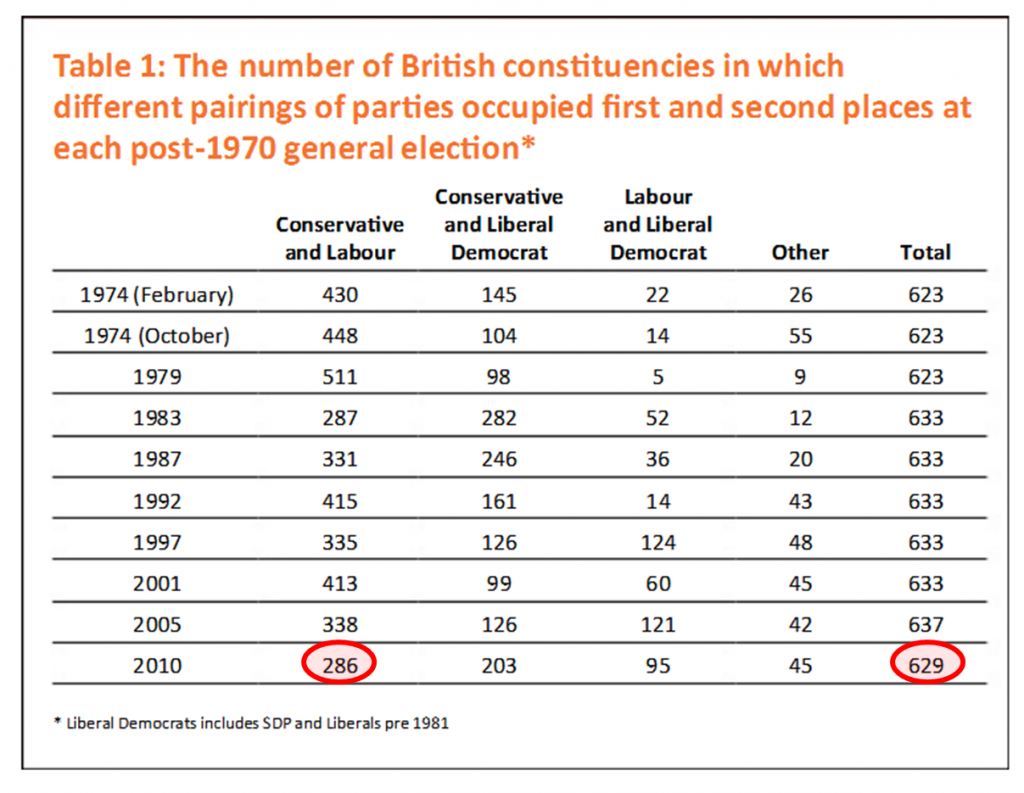The media’s problem when it comes to general elections
How should the national media report politics during a general election? That is an often debated question, ranging over topics such as whether or not to have leader debates, what the balance should be between political balance within every item versus balance over time, how much the media should focus on the issues politicians are talking about or others, and so on.
Rarely mentioned, however, is the increasing divide between the political story the national media tells and the political choices people are facing in their own constituencies. As I pointed out before the 2010 general election, only just under half the constituencies were Labour-Tory contests. The majority had another party (such as the Liberal Democrats or the SNP) in either first or second place, or were three-way fights. Yet the national media coverage is normally two-party: will the Conservative or Labour leader be the next Prime Minister?
The gap between that traditional two-party national story and the different two-party (or more) battles in constituencies has grown over successive elections, opening up an increasing gap between the national story and the local reality. The unusual circumstances of the first televised debate and Cleggmania means that the media’s blushes were partially spared in 2010, as that Tory versus Labour leader question was broadened out.
However, that was just a temporary obscuring of the problem. It is a problem I was reminded of this week when speaking at the launch of Policy Exchange’s excellent Northern Lights report (about which I’ve already written), as the report included this table (my highlighting):

In fact, the problem is getting even worse than the table suggests, because alongside the growing gap between national coverage and local realities has been the decline of local media. Not only are local newspapers facing huge problems with circulation, the level of political coverage has been pared back – as with other news coverage – meaning fewer stories and those that do make it to print are much more often of the “he said, she said” variety.
Investigative reporting that holds local candidates to account is becoming exceptionally rare. Good for the dodgy candidates whose past gets no more than a passing reference one week in one poorly read local newspaper, but bad for democracy.
Leave a Reply